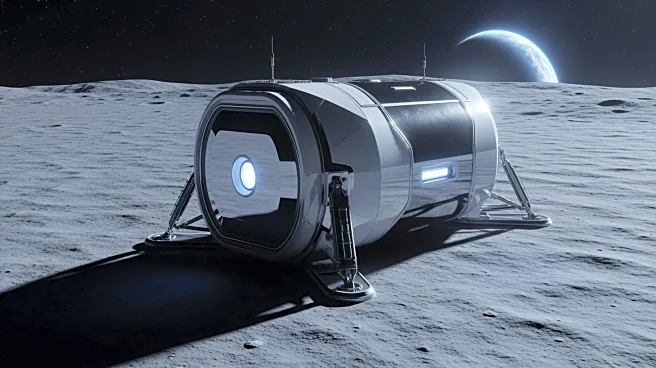What's Happening?
Kosmos, an AI system developed by Edison Scientific, claims to significantly expedite scientific research by processing large datasets and analyzing existing literature. The system reportedly completes research equivalent to six months of human effort
in just a few hours. Kosmos operates by running cycles where it analyzes data, searches through academic papers, and writes code to interrogate the data. The system has been credited with making several scientific discoveries, including insights into Alzheimer's disease and heart health. However, the accuracy of these claims has been met with skepticism from some experts, who question the novelty and methodology of the findings.
Why It's Important?
The development of AI systems like Kosmos could revolutionize scientific research by reducing the time and resources needed to achieve breakthroughs. This has implications for various fields, including medicine and biology, where rapid advancements could lead to improved treatments and understanding of diseases. However, the mixed reactions highlight the need for careful validation and scrutiny of AI-generated findings. The potential for AI to support scientific discovery is significant, but reliance on AI without human oversight could lead to flawed conclusions and ethical concerns about the role of AI in research.
What's Next?
Edison Scientific plans to continue refining Kosmos and addressing criticisms regarding its methodology and findings. The company acknowledges the importance of human collaboration in validating AI-generated results. As AI systems like Kosmos evolve, they may become integral tools in research, but their use will likely be accompanied by ongoing debates about the balance between AI and human creativity in scientific discovery.
Beyond the Headlines
The emergence of AI systems capable of conducting research raises questions about the future of scientific inquiry and the role of human intuition and creativity. While AI can process data at unprecedented speeds, the value of deep thinking and creativity in science remains irreplaceable. The integration of AI into research workflows may shift the focus from traditional methods to more data-driven approaches, potentially altering the landscape of scientific exploration.

















